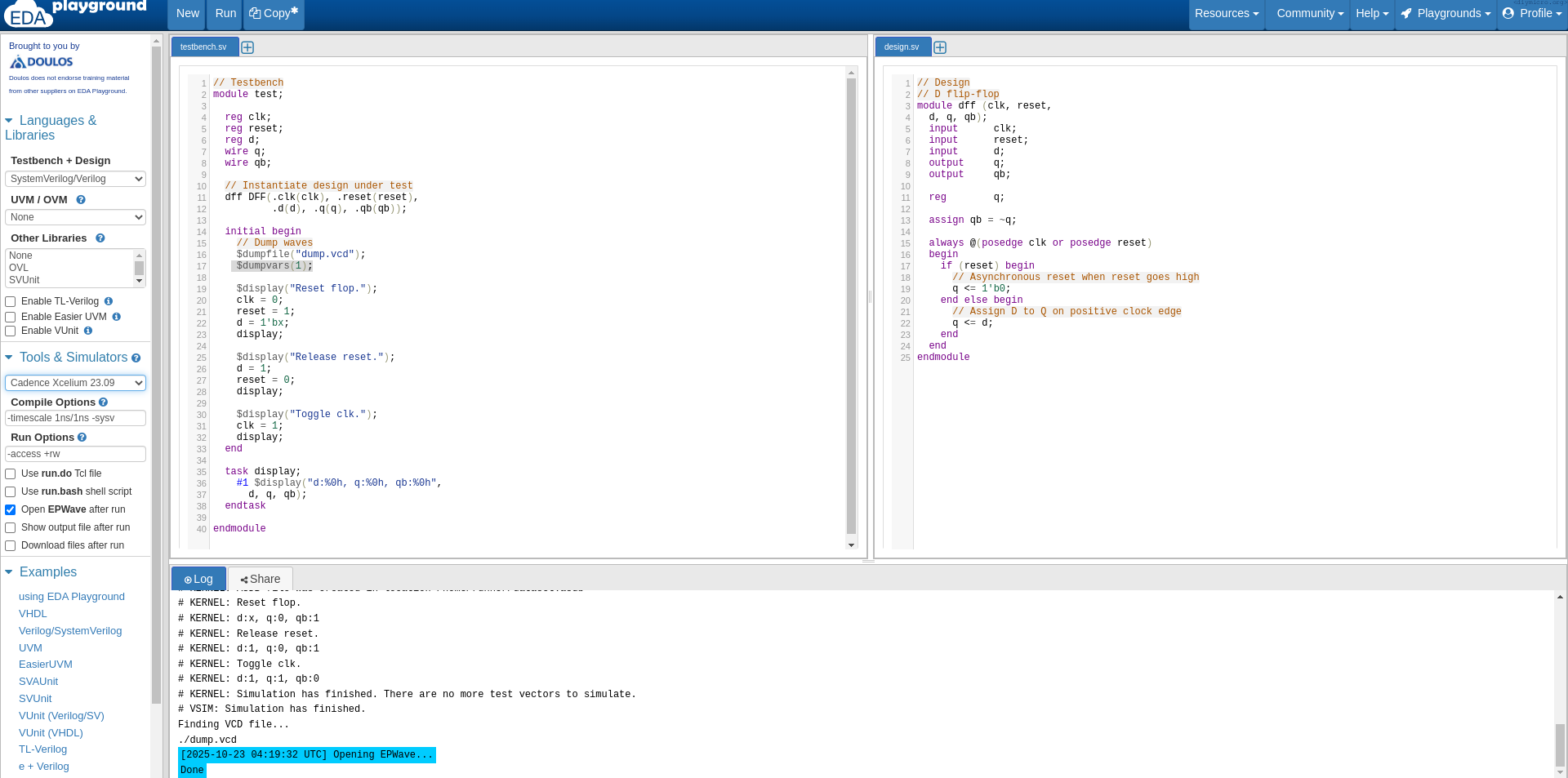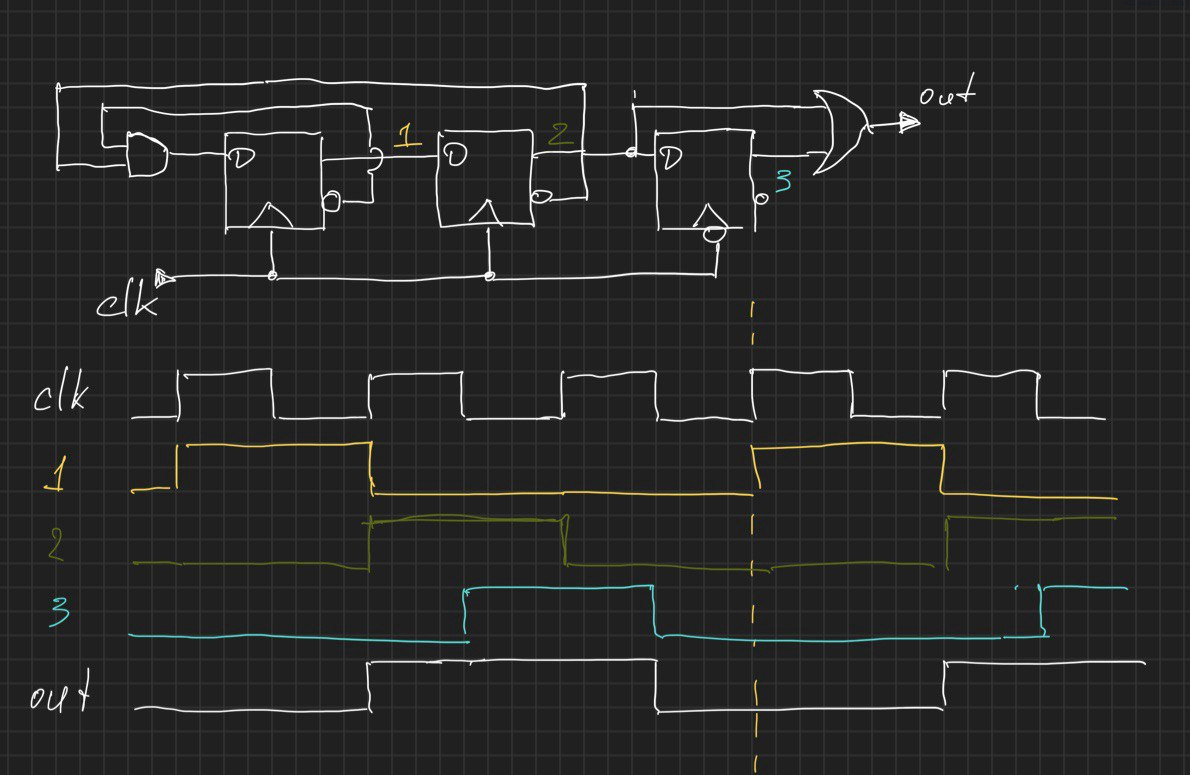I am not going to explore ton of different tools, at some point I found EDA playground website and it worked quite well for me. So this is a deal, we will use that for online quick tests. Note: you will need to use a working email for a free account.

I prefer to use xcelium simulator since it align with xrun command we use in cadence. They start the sim screen from two code windows: left one for the testbench and the right one for the block itself, though I did not get why do we need it, you can as well add new tab as new file or describe a new module right inside of the testbench code.
!!! Be careful with the stop time in xcelium, apparently there is no explicit way to run simulation for a given time and you need to specify $finish in the initial block to make it stop.

design:
//sandbox design diymicro
module dff (clk, d, q, qb);
input clk;
input d;
output q;
output qb;
reg q;
assign qb = ~q;
initial begin
q = 1'b0;
end
always @(posedge clk)
begin
// Assign D to Q on positive clock edge
q <= d;
end
endmodule
module and_gate (input wire a,b,
output wire z);
assign z = a & b;
endmodule
module or_gate (input wire a,b,
output wire z);
assign z = a | b;
endmoduleand testbench
// Code your testbench here
// or browse Examples
`timescale 1ns / 1ns
module testbench();
reg clk;
wire out;
wire qb_dff1;
wire d_dff1;
wire q_dff1;
wire clkb;
wire qb_dff2;
wire d_dff2;
wire q_dff2;
wire qb_dff3;
wire d_dff3;
wire q_dff3;
assign clkb = ~clk;
dff DFF1(.clk(clk), .d(d_dff1), .q(q_dff1), .qb(qb_dff1));
dff DFF2(.clk(clk), .d(d_dff2), .q(q_dff2), .qb(qb_dff2));
dff DFF3(.clk(clkb), .d(d_dff3), .q(q_dff3), .qb(qb_dff3));
and_gate and1(.a(qb_dff1),.b(qb_dff2),.z(d_dff1));
assign d_dff2 = q_dff1;
assign d_dff3 = q_dff2;
or_gate or1(.a(q_dff3),.b(q_dff2),.z(out));
//assign d_dff1 = qb_dff1;
initial begin
$dumpfile("dump.vcd");
$dumpvars(1);
clk = 1'b0;
#18 $finish;
end
always #1 clk = ~clk;
endmodule : testbench result

It is possible of course to not get to the business of the gates, but I am not sure if that is possible to synthesize in reality (not enough experience here heh):
module divide_by_3 (in, out);
input in;
output out;
reg out;
integer temp;
initial begin
out = 1'b0;
temp = 0;
end
always @(posedge in)
begin
temp = temp + 1;
if (temp > 2)
begin
out <= ~out;
temp = 0;
end
end
always @(negedge in)
begin
temp = temp + 1;
if (temp > 2)
begin
out <= ~out;
temp = 0;
end
end
endmodule //divide by 3
Pingback: FPGA Lab: Xcelium simulator tb flow (xrun) | diymicro.org